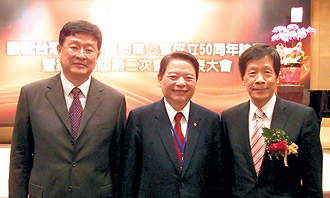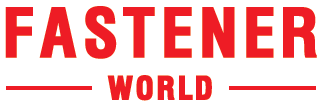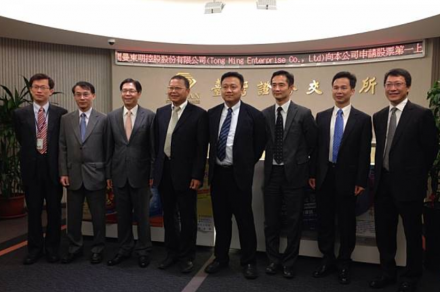Taiwan Open for China Steel Imports & CISA Assures No Market Turmoil


Taiwan and China steel association leaders talked in the 50th annual Taiwan Steel & Iron Industries Association (TSIIA) Forum on November 27. The forum gave speeches from TSIIA chairman Mr. Zhou, Japan Iron and Steel Federation chairman Tomono Hiroshi, and CISA vice chirman Mr. Wang. In the froum, TSIIA suggests that the government enhance communication with the steel industry to the potential impact of ECFA which is open for imports of China's steel. TSIIA also advises that CNS national standard should be implemented to avoid the situation where inferior steel affects construction quality. As Mr. Zhou tells, Taiwan steel industry is currently facing a significant challenge. The global (especially Asian) steel is in under over capacity that leads to dropping profit margins for steel plants and makes 2012 the most painful year. The cost proprotion of coal and iron rises from 25% to 60% and 70%. The intensive market competition directly leads to international trade disputes. ECFA poses a great challenge to Taiwan because the fact that it opens up imports of China's steel plates and wires will bring catastrophic influences. In order to coordinate with ECFA negotiation, Taiwan is planning to be open for imports of China's steel on full scale. Plus, China can have export tax rebate for steel export, and Taiwanese market is easily affected by imported steel. Therefore, if Taiwan doesn't act to strengthen R&D in high level steel, it will very likely be struck by the impact of red ocean battle.
As Mr. Wang points out, almost every nation implements export tax rebate for steel exports, but China doesn't offer the rebate and thus the proportion of rebates on special steels is small. He stresses that China steel industry usually depends on domestic demands and doesn't encourage steel exports, especially preliminary steels, and a small number of steel containing boron will be tax rebated upon export. He says that Taiwan has a relatively small market size, and China will not cause a turmoil to Taiwanese market. His words received a round of applause form the steel industry on site.
Mr. Zhou says that Taiwan steel industry has a lot of attractive features, and it has to focus on the ASEAN markets. Southeast Asia demands 50 million tons of steel annually, but it only porduces 25 million tons of steel. Coupled with the infrastructure boom in the ASEAN, the future demand for steel there will bu substantial. In addition, the auto industry is another bright spot for Taiwan. The global car sales reach as high as 86.98 million units, and the car industry is continuously growing. Car-oriented steel industry in Taiwan should improve itself and cooperate with China, Japan, and Korea to grasp more business opportunities.








